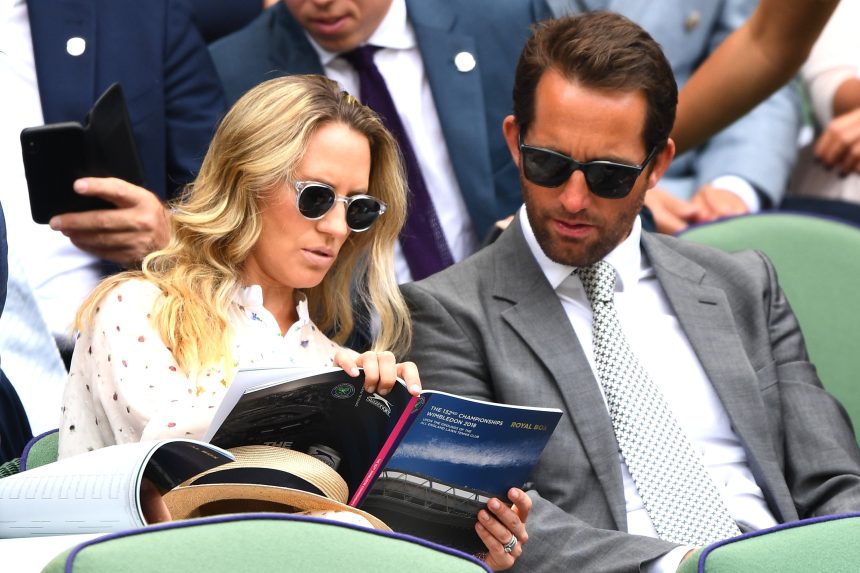Your support helps us to tell the story
From reproductive rights to climate change to Big Tech, The Independent is on the ground when the story is developing. Whether it’s investigating the financials of Elon Musk’s pro-Trump PAC or producing our latest documentary, ‘The A Word’, which shines a light on the American women fighting for reproductive rights, we know how important it is to parse out the facts from the messaging.
At such a critical moment in US history, we need reporters on the ground. Your donation allows us to keep sending journalists to speak to both sides of the story.
The Independent is trusted by Americans across the entire political spectrum. And unlike many other quality news outlets, we choose not to lock Americans out of our reporting and analysis with paywalls. We believe quality journalism should be available to everyone, paid for by those who can afford it.
Your support makes all the difference.
Olympic sailor Ben Ainslie and his wife Georgie have opened up about suffering years of failed IVF treatments and miscarriages.
In a new interview, the pair recalled the devastation that came with seven years of unsuccessful IVF treatments when trying to conceive their two children.
When the pair tried to start a family after they wed in 2014, both aged 37, they found out they had “unexplained” infertility.
Their first round of IVF gave them their first child, a girl named Bellatrix, born in 2016, but the same IVF success was never repeated when it came to having a second child.
Georgie underwent seven rounds of IVF and had three miscarriages, losing a child at eight weeks, twelve weeks and fourteen weeks.
IVF – or in vitro fertilisation – is when an egg is removed from a woman’s ovaries and fertilised with sperm in a laboratory. The fertilised egg is then returned to the woman’s womb to develop.
Speaking to The Times, Ainslie recalled that the miscarriages were “horrific” for them both, while Georgie, a former Sky Sports presenter, said she felt like she was in a constant cycle of IVF treatments.
She said: “I remember being at the Science Museum, hosting something, and being in the loo moments before, injecting myself with hormones.”
“I know IVF rounds shouldn’t merge into one another, but over a period of three years, they did. You never let yourself come off that treadmill because you think, ‘If I step off it to recover, I’ll never want to put myself back on it again.’ You are always thinking, ‘It will happen next time.’”
The pair underwent years of IVF until they decided to use a surrogate – and the pair welcomed their second child, Fox, who was born to an American surrogate using Ainslie’s sperm and a donor egg, in 2021.
Georgie admitted that their second to last IVF cycle pushed them both “over the edge”, while Ainslie said he became worried as he noticed her “pushing herself physically”.
“She was broken. I could see, mentally, it was destroying her,” said Ainslie. “You can only watch your partner go through so much before you say, ‘This is not sustainable.’ I knew we couldn’t carry on. This version [of trying] needed to stop. But then straight away we looked at what alternatives there were.”

Georgie agreed that a “line had to be drawn” and that she probably would have kept going if her husband hadn’t pointed it out.
She said: “As a woman, you get competitive with yourself. You tell yourself, ‘I cannot fail at this. I’ve thrown so much into this. How can I possibly not come out on the winning side?’ But, of course, that is not how fertility works.”
In the UK, around one in seven couples may have difficulty conceiving, while miscarriages affect around one in five women.
Infertility is usually only diagnosed when a couple has not managed to conceive after a year of trying.






